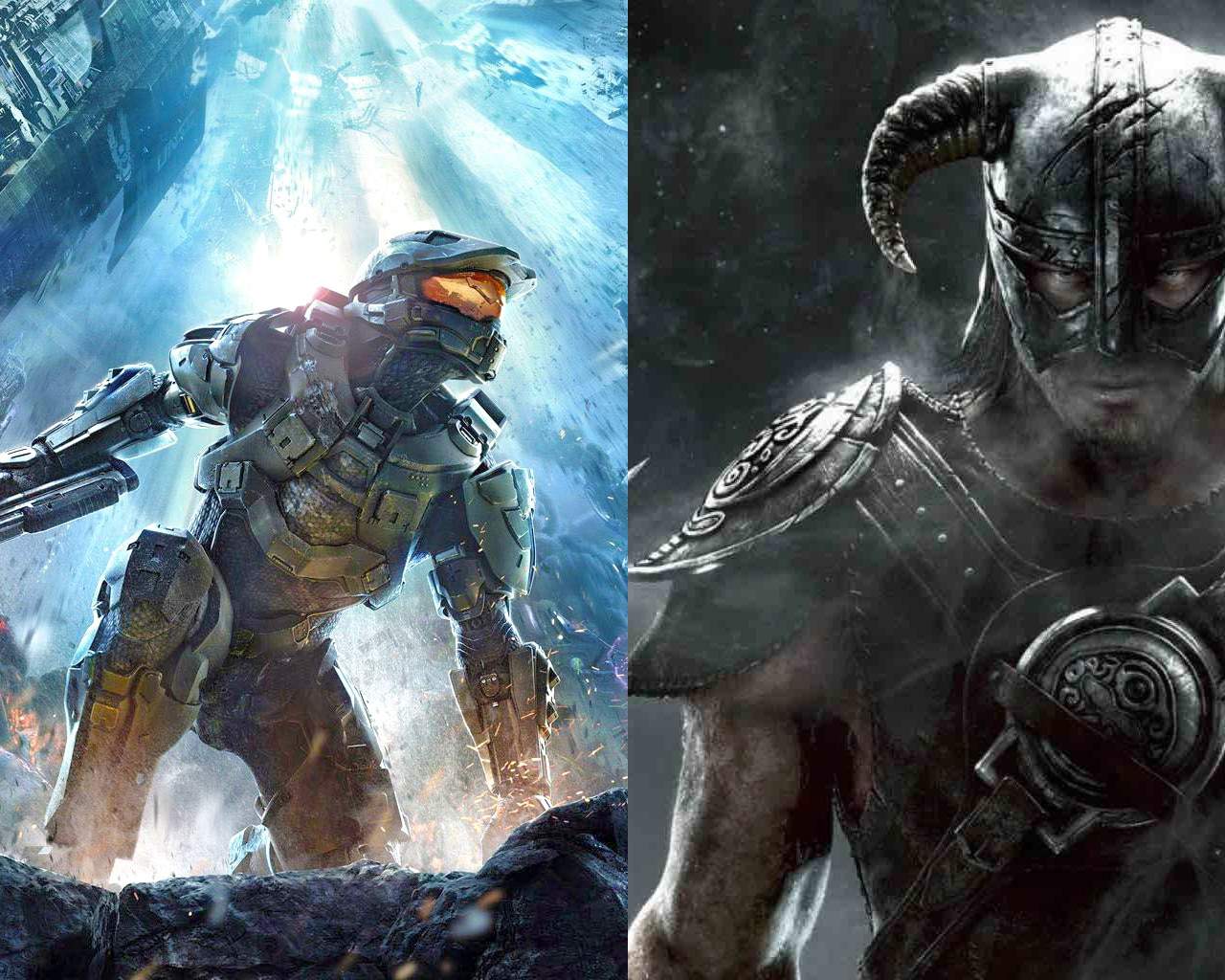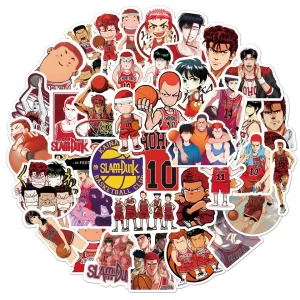THIS ARTICLE WAS WRITTEN BY BOTH NICOLE EVANS & LIZZ GRIMSLEY
Both Bethesda and Bungie have left a significant mark on the gaming industry with major titles such as The Elder Scrolls, Fallout, Halo, and Destiny. However, they have also faced their fair share of controversy and disappointment. Today we are exploring the ways Bethesda and Bungie stack up against each other by comparing their successes and failures in hopes to uncover which developer is superior.
Bethesda
Bethesda is best known for producing The Elder Scrolls, Fallout, Doom, and Wolfenstein series, many of which have received awards in the past fifteen years. In 2006, Elder Scrolls IV: Oblivion was named Game of the Year. In 2008, it was Fallout 3. Elder Scrolls V: Skyrim received the same title in 2011, as did Fallout IV in 2015. Fallout Shelter also received awards, including one from D.I.C.E. for Mobile Game of the Year.
The Elder Scrolls series is arguably one of the most recognizable Bethesda productions. The first release in this series was The Elder Scrolls: Arena in 1994, which acted as a trailblazer for future Bethesda RPG’s. Since then, new games to the franchise have been celebrated for their considerable feats. The Elder Scrolls III: Morrowind (2002) was a leap forward for the series. The graphics alone stood above previous games. When The Elder Scrolls IV: Oblivion was released in 2006, players were able to experience environments far more complex than they ever had before. It went on to be recognized with various awards, including being considered among the greatest games ever made. The Elder Scrolls V: Skyrim also received massive praise. It went on to sell 30 million copies within five years, according to Tom Howard in an interview with Rolling Stone.
Given the many challenges we’re facing due to the pandemic, we will not host a digital Showcase in June. We have lots of exciting things to share about our games and look forward to telling you more in the coming months.
Unfortunately, Bethesda has had a history of controversy, including lawsuits. As of April 2007, Bethesda had purchased the rights to Fallout from Interplay for $5,750,000. As part of their deal, Interplay could develop a Fallout MMO as long as they could afford the $30,000,000 price tag within two years. If they did not meet these conditions, they would lose their licensing rights. In April 2009, just under the two-year mark, Interplay told Bethesda they met the conditions and would move forward with their production of the MMO. However, Bethesda responded a few days later, claiming Interplay had not met conditions and were to cease production and use of the Fallout trademark. Bethesda sued in September of 2009, which began the lengthy battle between the two companies. After three years, Bethesda paid a settlement that gave them all rights to Fallout and, as of 2013, Interplay had none.
Bethesda also faced backlash over The Elder Scrolls Online after its release in 2014. The MMORPG received mixed reviews and was criticized by players for its use of microtransactions, subscription fees, and a buy-to-play model. Many reviews also called it just “okay”. The release of Tamriel Unlimited sought to address these issues, namely by dismantling the subscription fee.
Fallout 76 seemed to add more problems for Bethesda. Reviews of the game were among the worst ever. Some described it as monotonous and riddled with bugs. Though glitches are no stranger to Bethesda games, the ones in Fallout 76 were so significant, it required major patches, the first of which being nearly the same size of the game itself. The game also included a subscription service, recycled private services (fully looted with deceased NPCs), and other technical difficulties.
One final major controversy involved Fallout 76’s $200 special edition. Bethesda initially advertised that purchasing this edition would come with a canvas bag, but fans were sent a nylon version instead. Bethesda claimed that they had to make the switch because they’d run out of material. They never announced the change to nylon and originally had no intentions of offering a solution. What they ended up doing was a slap in the face to gamers by offering free in-game currency that was worth approximately $5.
We understand and respect that there is disappointment with the bag in the Power Armor Edition. We are sorry. Please contact Bethesda Support to provide proof of your CE purchase. They will assist in granting your account 500 Atoms.
Ultimately, Bethesda’s legacy of great games is muddled by a history of controversy and lawsuits. Perhaps the future seems bright but with the last major Bethesda title causing so many issues, it remains to be seen if this developer has a leg to stand on in comparison to Bungie.
Bungie
Known for their development of Halo: Combat Evolved (2001) and Halo games until 2010, Bungie can be viewed as one of the “founding fathers” of modern video games. Considered one of the greatest video games of all time, Halo: Combat Evolved became the standard for modern first-person shooter game design. The game ended up receiving a total of 48 awards, with the titles soundtrack being among the most praised features. After the release of Halo 2 in 2004, Halo became a full franchise with movies, comics, toys, and books. Bungie held on to this franchise until losing the intellectual property rights to Microsoft after they split from the company in 2007. The last Halo game Bungie helped develop was Halo Reach, which was released in 2010.
After Halo, Bungie became a different company. No longer did they hold the rights to one of the most popular video game franchises, a major setback to the company. After a short amount of time, Bungie announced that they would be going into a 10-year contract with Activision in late 2010. The next year, Bungie helped publish an iOS game called Crimson: Steam Pirates (2011) that was developed by an indie company called Harebrained Schemes. While the game got good reviews, it did not receive much attention. It wouldn’t be until 2014 that Bungie would release their next game.
On September 9th, 2014, Bungie released Destiny. Destiny was the first game Bungie had developed since Halo, and bore a resemblance to the series. Set in a fantasy-like science fiction world, Destiny is an online first person shooter. The game got a positive reception from both players and game critics. Metacritic gave the PS4 version of the game a 76/100, with the user reviews currently sitting at 6.1/10. Destiny had an incredible start, shipping $500 million worth in product within a single day. That being said, the game was not without its share of critiques. Many felt that the gameplay was fun but the story was incredibly lacking, with the end of the game being an unfulfilling grind. Bungie ended up adding extra story content in the form of “The Dark Below”, Destiny’s first DLC game expansion.
While originally Destiny was a product of both Bungie and Activision, Bungie ended up an independent company again after the 10-year contract was up in 2019. This time, Bungie had made sure that any intellectual property that they created during their time with Activision stayed with them, and so Destiny continued under the sole ownership of Bungie. In 2017, Bungie released Destiny 2, a direct sequel to the original. Destiny 2 was cited as having a stronger plot and improvements to gameplay, as well as having a few new game modes.
As Destiny 2 is a continuous project that Bungie has kept up with, some controversy has arisen from the company’s handling of the game. Among 2017’s general upsetness with “pay to win” formats and the questionable nature of loot boxes, Destiny 2 had a similar shady business. Bungie was caught showing players a higher amount of experience gain than they were actually receiving, and not giving out a uniform amount of XP for defeating the same enemies multiple times. This was found out by players to not be true. Many tracked their experience gain and found out that the more repeated defeats of an enemy would consistently lower the amount of XP gained from them. Infuriated, players demanded a response from Bungie, whose month-later PR statement only further enraged their fans.
While Bungie did eventually solve the XP-scaling, it also doubled the amount of XP needed to level up without openly stating the change. This, of course, further alienated Bungie with its Destiny fan base. The next year, Destiny 2 received quite a bit of negative press. Many fans made it apparent that they wanted more from the game, and didn’t feel like Bungie was adding enough to keep up with those who wanted the game to be as good as its predecessor.
Recently, Bungie has been under fire for the bugginess of Destiny 2. Bugs have done everything from kicking players from matches to randomly giving players double loot and exotic drops. Between the bugs and the seeming disconnection between company and customer, Destiny 2 is seeing some of the worst public reaction since it’s release. This also lines up with Bungie’s recent deal with Chinese company NetEase, who now has a representative on the company’s board of directors as of 2018.
It is not all bad publicity for Bungie though. With the recent surge of the COVID-19 pandemic, Bungie was a stellar example for the gaming industry. Being located in Washington state where the first signs of COVID-19 arose, Bungie was quick to transform its work force into a fully operating work from home business. Bungie stated that because of the yearly dangers of earthquakes and blizzards, the company already had plans for a quick switch to a work from home set up. Many other game development companies have taken tips from Bungie’s plans to keep their employees safely working at home.
It seems that Bungie has constantly had bad luck going back and forth between partnering companies, and the loss of their most precious Halo IP set the company back for years. As Bungie doesn’t seem to make content when they are not getting assistance from another company, they must struggle in some way on their own. But, there is no telling what sort of creative interference the company feels with a constant presence of another company looming over them at all times. In many ways Bungie has done wrong to its fans, but has also been a victim of it’s own circumstances.
Which company do you think has best handled it’s worst moments? Has Bethesda redeemed itself enough to keep its dedicated fans happy amid lawsuits and the varying disappointments from some of it’s titles? Do you think Bungie’s lack of trust from Destiny 2 fans will blow over as they continue to add to the game? Or are the companies’ older, famous titles of Elder Scrolls V: Skyrim and Halo: Combat Evolved enough to keep their fanbase from completely turning away from them?













